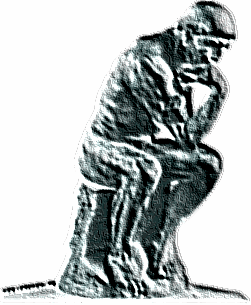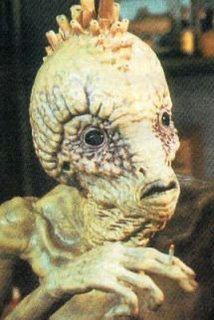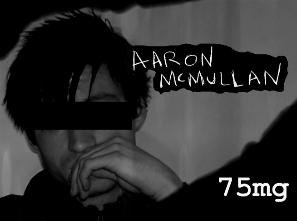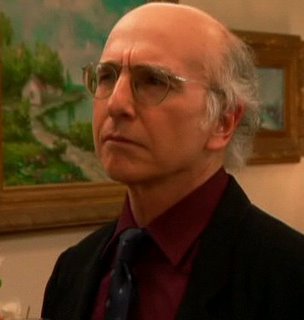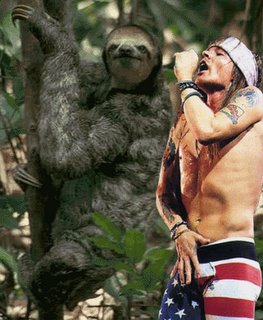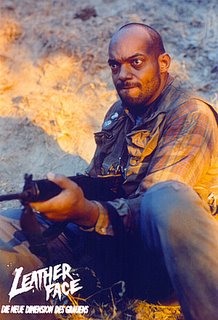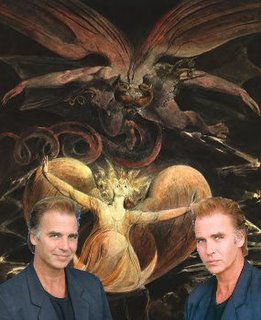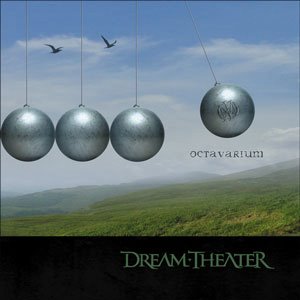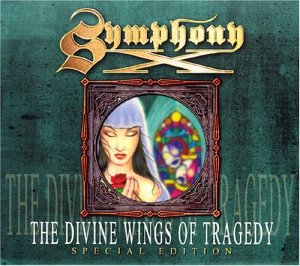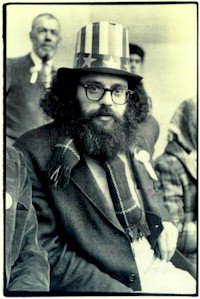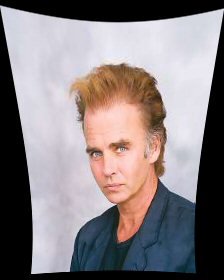The Fly (1986) 2-Disc Special Edition DVD

The start of October brought that which I and my fellow Fly fans yearned for over many long restless nights, a special edition DVD of David Cronenberg’s classic, The Fly. Fox Studios finally bayed to the howls and cries of fans, disgruntled over the DVD treatment so far of the film, a paltry double pack of it and it’s inferior sequel, and so they brought out a mammoth 2-disc extravaganza, “packed with chilling new extras” according to the sticker on the box, the sort of disc-set to make those cats over at Criterion shiver with jealousy.
This film’s been a favourite of mine since I first saw it as a youthful ten-year-old a decade ago, although I was hardly fit to understand the depth and intricacies then. The film for those who don’t know, and I doubt many of you are unfamiliar with the plot, concerns scientist Seth Brundle (played by Jeff Goldblum) who invents a device capable of transporting matter through space from one fixed spatial position to another. He eventually goes through the machine himself, and the process works perfectly as it should, except that unbeknownst to him a fly was in the machine with him during the teleportation. Unlike the 1958 original, Brundle comes out normal, but soon begins to experience mental and physical changes.
The film is genius for many reasons, most originating from David Cronenberg’s majestic writing and direction. He produces an interesting and compelling film that doesn’t skimp on minor details. Where the original (a 50s B-movie with Vincent Price) has the awry transportation resulting in a swapping of heads between the scientist and the fly, blatantly absurd and nonsensical illogicality, Cronenberg injects his film with a credible scientific reasoning. I still see questions about this on message boards, so I might as well clarify things here: in the transportation, Brundle fuses with the fly at a molecular genetic level; this means that Brundle’s genes are now the new ‘Brundlefly’ mix. He doesn’t emerge as a hideous creature because it’s the genetic formula that has been altered not the actual cells, and thus the process is a prolonged change over time as old cells die and are replaced with the new ‘Brundlefly’ combination (just like the natural processes in all of us of skin cells dying and being replaced). The fly doesn’t emerge and begin to slowly turn into a small Brundle-esque creature because to the computer Brundle was the main object of the teleportation. Sure it’s still science-fiction, and probably wouldn’t happen in real life, but nevertheless the science is of a high, and believable, level.
The Fly is generally categorised as a horror film, and I guess it’s understandable for some of those visceral moments later on, but at its heart it’s a love story. Despite labels of metaphoric allusions to AIDS and cancer, Cronenberg wanted to show the effects of old age (which is more jolting because it’s inevitable for everyone) and it’s ramifications in the microcosm of the couple. Here we see Veronica helpless to assist, and left to view the disintegration of her lover Brundle. Then of course, with the inclusion of Stathis Borans it’s a verifiable love triangle.
The acting in the film is nothing short of brilliant. Geena Davis puts on a wonderful sceptic-turned-enthusiast early on, and then executes the slide to lamentable individual cursed to ineffectuality sublimely. But obviously the real star here is Jeff Goldblum, who conjures a realistic and sympathetic figure. Certainly at the centre of this film’s appeal is the main character, relatable by many. At the beginning he is shy and geeky, in many ways playing a teenager as he tries to woo his female conquest. He then goes through different changes in personality, through obnoxiousness and ostentation, to sickly and morose, then to psychopathic bloodthirstiness. As a character piece it’s fantastic to view the different psychological changes, such as a newly founded sexual prowess, and the animal viciousness. The most amazing thing is that Goldblum is able to continue that identifiable persona, even through the numerous layers of rubber makeup that were to come later on. There is a lot to be said about acting through the eyes.
There’s elements of comedy in there too, Cronenberg’s typically dark humour comes through a number of times, such as: “Is this real, or is it Memorex?” Or Brundle’s gawky attempts to pursue Veronica. Although Videodrome’s probably better overall if it’s a dark humour you’re looking for.
And what of the horror then? Well there’s the visual gratuity feasts towards the end, but their effectiveness lies solely within the story and characters, it’s made all the more perturbing because of the concern we now have for the protagonists. But the horror isn’t just derived from the visuals, the dialogue contributes plenty to this, just witness the ‘insect politics’ speech.
The film is topped off with a magnificently tragic score by
So the DVD then. Undoubtedly one of the main areas of interest are the infamous deleted scenes, specifically the six minute long monkey-cat scene. To those unaware, this scene occurs late on in the film and features Brundle testing his bio-matter fusion theories, similar to what he attempts in the last scene. Using the telepods, he proceeds to fuse a monkey and a cat together, which, subsequent to amalgamation, attack him, and he has to beat this new monstrosity of nature to death with a pipe. Following this he goes to the rooftop for some frolics. A pain in his side causes him to fall down the side of the building, and, on landing at the bottom, a fly leg bursts it’s way out of the side of his abdomen. He uses his corrosive enzyme on it and then rips the rest off with his mouth. I was one of those eager fans impatient to see this, and it didn’t let me down. Understandably it’s dark as hell (the main reason for cutting it – animal fusion may have led to a dissipation in sympathy for Brundle, sympathy which is paramount), and moreover it’s bizarre and surreal to watch. It’s also very sad; prior to the fall, Brundle sits perched on the rooftop and begins to shout “No!” repeatedly, presumably at the recognition of his continuing loss of humanity. Of course this exclusion does result in a couple of minor plot discrepancies, for example Brundle’s earlier mystification at what the lump in his side was is not resolved without this scene, not that it’s a major thing. Deleted scenes from films you’ve seen many times always seem strange upon first viewing, and this is no different. It’s brilliant, but I understand why it was excluded; I’ve seen it now and can die happy.
The DVD’s main special feature is the Fear of the Flesh documentary, a beast of a retrospective that lasts for over two and a half hours. It features everyone who was involved in the film production (except for Cronenberg himself – he has a commentary track anyway) and is laid out in chronological order through the varying stages of production. I doubt they could have made a more comprehensive documentary, no detail is spared here.
David Cronenberg’s commentary is exemplary as always, the man is a hive of knowledge. And surprisingly there is little overlap between it and the documentary. Cronenberg is able to elucidate plot points and production technicalities both intelligently and succinctly, and is simply a joy to listen to.
Other special features include textual versions of the original short story, original screenplay, and Cronenberg’s rewritten opus. Also photo galleries, trailers, and the other usual bits and pieces.
It makes me full of divine bliss every time I see my copy sitting there on the DVD shelf, imported straight from the heaving streets of

